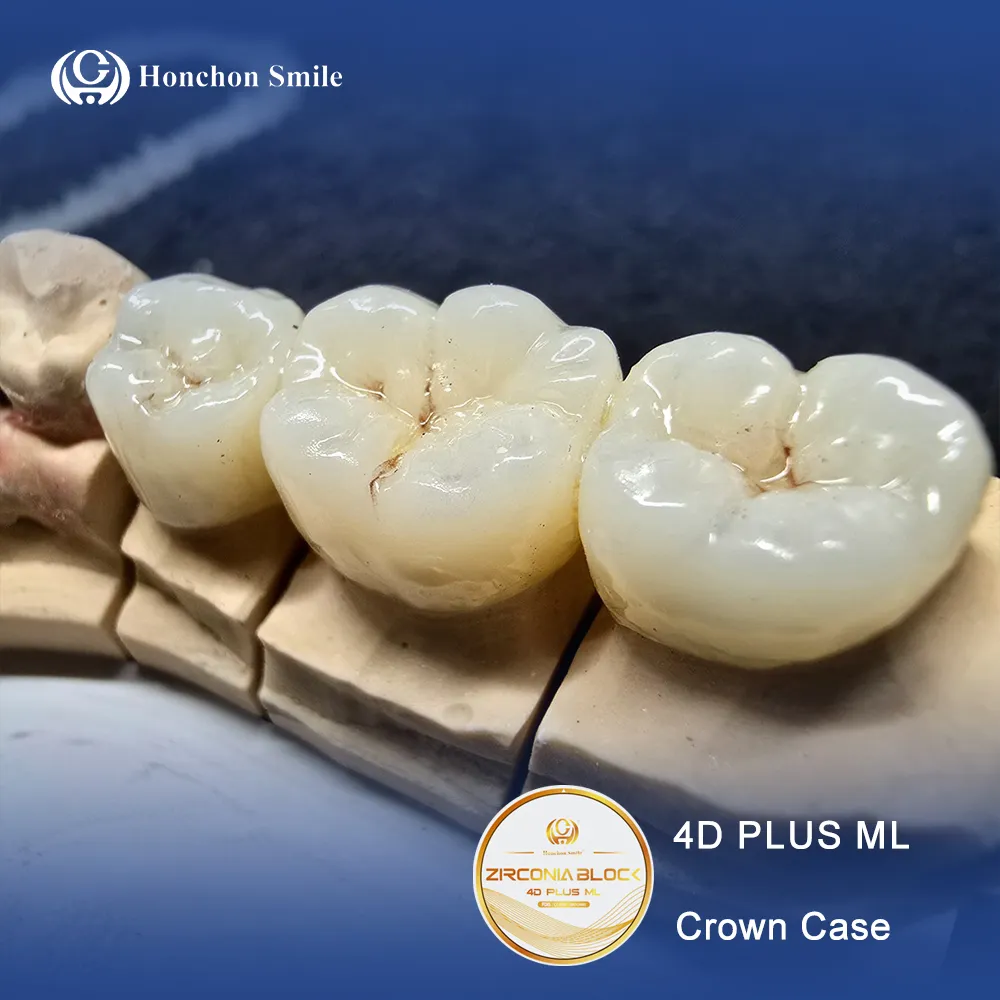Dental crowns are an essential solution in modern dentistry, restoring damaged teeth, improving aesthetics, and supporting oral health. They protect compromised teeth from further decay and structural loss. Among the various crown materials available today, zirconia dental crowns have become increasingly popular due to their combination of strength, durability, and natural appearance.
This article explores why zirconia crowns are a preferred choice, including their definition, advantages, clinical applications, maintenance, and cost considerations.

Definition:
Zirconia, or zirconium dioxide (ZrO₂), is a high-strength, biocompatible ceramic widely used in dentistry. Zirconia crowns provide a metal-free option that closely mimics the look of natural teeth while offering exceptional durability. Unlike traditional metal-based crowns, zirconia eliminates the risk of metal allergies and visible gray gum lines.
Manufacturing Process:
Zirconia crowns are crafted from solid zirconia blocks. Using CAD/CAM technology, the blocks are precisely milled and sintered to achieve optimal fit, strength, and aesthetics. This digital workflow ensures accuracy and reduces the need for manual adjustments.
Comparison with Other Crowns:
Metal crowns: Strong but less aesthetic; may cause allergic reactions.
Ceramic crowns: Beautiful but less resistant to fracture.
Composite crowns: Economical but shorter lifespan and lower durability.
Zirconia crowns are highly resistant to fracture and chipping, making them suitable for both anterior and posterior teeth. They withstand strong biting forces, including in patients with bruxism, offering long-term protection for the underlying tooth.
Zirconia crowns mimic the natural color and translucency of teeth. Multilayer or pre-shaded options allow precise color matching, producing a harmonious and natural-looking smile. This makes them ideal for highly visible front teeth restorations.
Zirconia is non-reactive and hypoallergenic, reducing the risk of gum irritation or allergic reactions. Its biocompatibility ensures healthy soft tissue and long-term oral comfort.
CAD/CAM technology enables highly accurate, custom-fit crowns. Zirconia crowns are compatible with major milling systems such as Roland, Amann Girrbach, and open-system devices, improving lab efficiency and chairside workflow.
Indications:
Severely decayed or fractured teeth
Teeth after root canal treatment
Discolored, worn, or misshapen teeth
Patients with metal allergies
Long-span bridges and implant-supported restorations
Clinical Cases:
Case 1: A molar with extensive decay restored with a zirconia crown, restoring full chewing function.
Case 2: A fractured front tooth repaired with a pre-shaded crown, seamlessly blending with surrounding teeth.
Limitations:
Severe bruxism may require special design or protective night guards
Limited tooth structure may prevent crown placement
Poor oral hygiene can compromise crown longevity
Daily Oral Hygiene:
Brush twice daily with a soft toothbrush and fluoride toothpaste
Floss or use interdental brushes daily
Rinse with an antibacterial mouthwash
Professional Care:
Regular dental check-ups for inspection and professional cleaning
Adjustment of crown fit if needed
Long-term Tips:
Avoid extremely hard foods that may stress the crown
Monitor bite and report discomfort promptly
Cost:
The price of zirconia crowns varies by complexity, geographic location, and materials used. Typically, the range is $800–$2,500 per crown, covering the zirconia block, lab work, and dentist fees.
Insurance:
Many dental insurance plans cover a portion of zirconia crowns, though limits may apply. Patients can also explore financing options offered by dental offices.
Cost-Effectiveness:
Despite higher initial costs, zirconia crowns offer long-term value due to durability, minimal repairs, and longevity compared to metal, PFM, or composite crowns.
Zirconia dental crowns are a durable, aesthetic, and biocompatible solution for tooth restoration. Their compatibility with CAD/CAM workflows, along with ISO 13485 and FDA certification, ensures predictable clinical outcomes. With proper care and regular dental visits, zirconia crowns provide long-lasting, reliable restorations that satisfy both patient and dentist expectations.